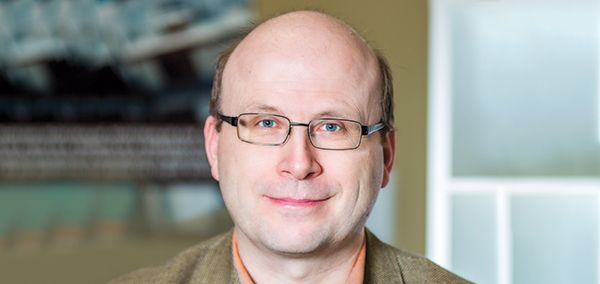
Steven High is an interdisciplinary oral and public historian with a strong interest in transnational approaches to working-class studies, forced migration, community-engaged research, as well as oral history methodology and ethics. He is a full professor at Concordia University, a founding member of the Centre for Oral History and Digital Storytelling, and the president of the Canadian Historical Association (CHA) (2021-23).
Last month, the Canadian Historical Association sent a letter to Library and Archives Canada to complain about service cuts. What happened?
Historical research requires access to public archives as well as our interview partners. The pandemic resulted in the suspension of in-person interviews and the closure of public archives. Until the vaccines were fully rolled out, these measures were needed to save lives. However, governments have been slow to reopen archives and, in the case of the Library Archives Canada, it has actually begun to roll back opening hours. There is a growing fear that government will use the break of the pandemic to roll back public access to services further.
There has been a steady erosion in public funding for universities and colleges. What is the impact on academic staff, specifically historians?
For too long, precarity has been dismissed as an issue due to the corrosive idea that we live and work in a meritocracy: that the “best” candidates do find full-time employment. On the one hand, the internalization of the meritocratic idea has caused many contingent faculty and recent graduates looking for work to doubt themselves. If only they had worked harder, published more, met more people: then the outcome might have been different. On the other hand, meritocratic thinking has served to comfort the comfortable: effectively depoliticizing precarity. The “collegial” structures within the academy implicate full-time faculty in a system, while not of our making, that is fundamentally unfair and exploitative.
The Canadian Historical Association organized a series of round-tables last year on precarity within the profession and then issued a report, which discusses structural forces at play such as the shift to part-time/occasional staff.
How has the history field changed in the past few decades?
History, quite rightly, has the reputation of being one of the whitest of scholarly disciplines in Canada. Obviously, who is in the conversation matters: informing our research practice and interpretation. It also shapes our relationships to the communities we study. How could it be otherwise?
I sometimes point out that disciplinary authority in history has traditionally been founded on critical distance: the more the better. With distance comes clarity, or at least this is the old disciplinary logic. Students of history are therefore taught to write in the past tense and the third person in order to actively suppress the present. To have proximity to the histories we study is therefore to be politically suspect. A new generation of Black, Indigenous and People of Colour (BIPOC) scholars, and others, however, are challenging the pretense of disinterest.
We saw this over the summer when the Canadian Historical Association’s governing council unanimously issued a Canada Day statement recognizing the genocide of Indigenous peoples in Canada. It was no coincidence that fully one-third of the Council is BIPOC.
Though overwhelmingly supported by our membership, an open letter signed by 53 historians and political scientists condemned the statement, arguing that this kind of activism was incompatible with true scholarship. That the far-right media embraced the signatories was no coincidence, as it fits neatly into their culture war narrative. That only five of the signatories were in fact Canadian Historical Association members, and even fewer were subject specialists, was left unmentioned. Not surprisingly, they were also white, overwhelmingly men, and mostly retired.
As the Indigenous historians on the Board of Shekon Neechie noted in their open letter to the Council of the CHA and the Canadian public, “this is not merely an interpretive debate limited to the ivory tower. It has very real and significant current implications for our society….We assert that taking up space to challenge the use of the word genocide while Indigenous communities across the country are raw and grieving is another example of the blind, callous and unethical conduct that has characterized so much of the research ‘on’ Indigenous peoples within Canada.”
What are your thoughts on how academic staff associations can navigate contentious debates on topics such as academic freedom?
The moral panic over “cancel culture” is overblown. The real danger to our academic freedom is conservative governments using this as a pretext to mandate some kind of false “neutrality” on universities or shifting resources away from the humanities and the social sciences. The UK has seen the ideologically driven closure of a number of history departments at working-class universities. There is a danger of non “top-tier” universities slowly becoming trade schools, reserving the liberal arts and humanities for more elite colleges.
What happened to Laurentian [University] must never be allowed to happen again. And I say this as someone originally from Northern Ontario. My advice for academic staff associations is therefore to keep their eyes on the ball.